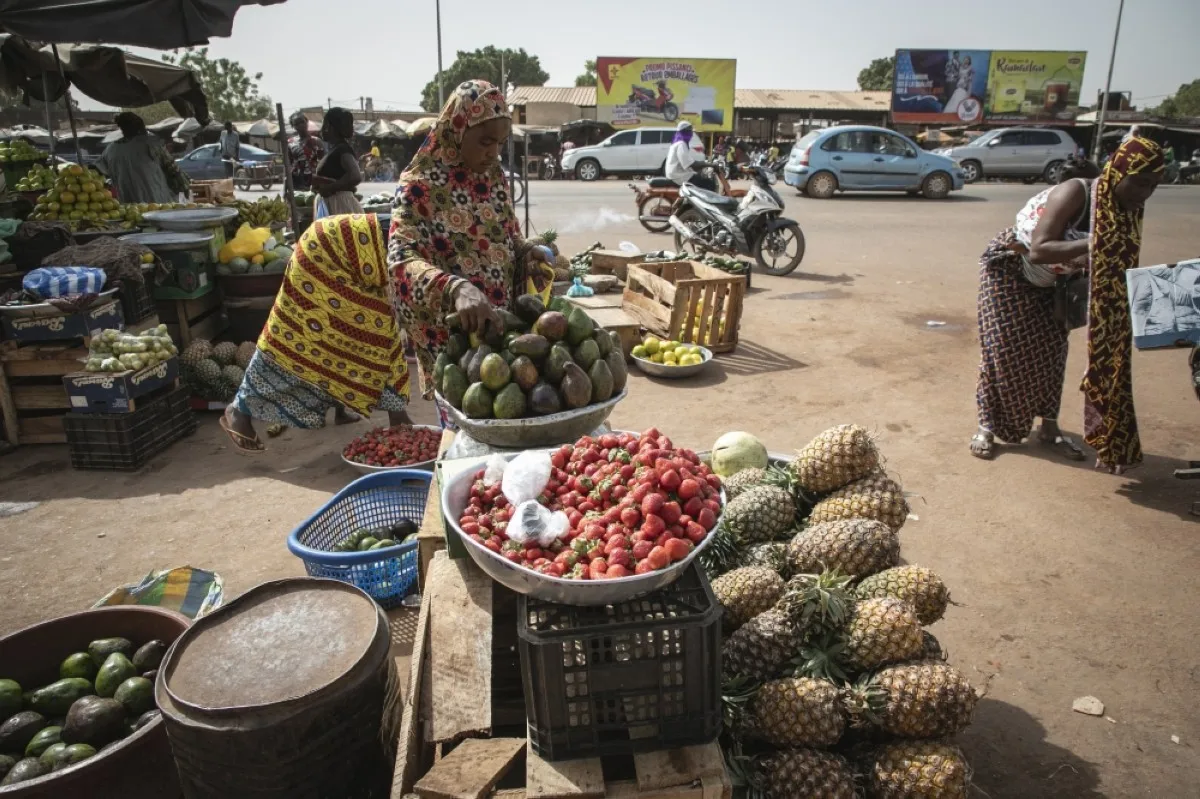OUAGADOUGOU: In the suburbs of Burkina Faso’s capital Ouagadougou, lucrative strawberry farming is supplanting traditional crops like cabbage and lettuce and has become a top export to neighboring countries. Prized as “red gold” in the Sahel, strawberry crops brought in some 2.0 billion CFA francs ($3.3 million) from 2019 to 2020, according to agricultural support program PAPEA.
In their January to April season, strawberries “take the place of other crops”, Yiwendenda Tiemtore, a farmer in the working-class Boulmiougou district on the city outskirts, told AFP. Tiemtore has been busy harvesting the red fruit since dawn, before temperatures rise to 40 degrees Celsius (104 degrees Fahrenheit). He harvests about 25 to 30 kilograms (55-66 pounds) of Burkina’s popular strawberry varieties, “selva” and “camarosa”, every three days, watering his plots from wells.
Cultivating strawberries, which thrive on ample sunlight and water, might come as a surprise in this semi-arid West African country. But Burkina Faso leads the region’s strawberry production, growing about 2,000 tons a year. Despite being prized by local customers, more than half is exported to neighboring countries. “We receive orders from abroad, particularly from Ivory Coast, Niger and Ghana,” said market gardener Madi Compaore, who specializes in strawberries and trains local growers. “Demand is constantly rising and the prices are good.”
In season, strawberries tend to be sold at a higher price than other fruit and vegetables, fetching 3,000 CFA francs ($5.0) per kilogram. Production has remained strong despite insecurity in the country, including from jihadist violence and the repercussions of two coups in 2022. As well as in Ouagadougou, strawberry production is prominent in Bobo-Dioulasso - Burkina’s second city - even though “the sector’s not very well organized” there, Compaore said.
Since the 70s
“You might think it’s an oddity to grow strawberries in a Sahelian country like Burkina Faso but it’s been a fixture since the 1970s,” Compaore added. The practice began when a French expatriate introduced a few plants to his garden in the country. Now more and more people are growing them. “It’s our red gold. It’s one of the most profitable crops for both growers and sellers,” he explained.
Seller Jacqueline Taonsa has no hesitation in swapping from apples and bananas to strawberries in season. “With the heat, it’s hard to keep strawberries fresh for long,” said Taonsa, who cycles around Ouagadougou neighborhoods balancing a salad bowl on her head. “So we take quantities that can be sold quickly during the day,” she explained. That usually amounts to about five of six kilograms. Adissa Tiemtore used to be a full-time fruit and vegetable seller.
She has mainly switched to selling woven loincloths now but takes up her strawberry business again in season because of the lucrative margins, as high as “200 to 300 percent”. “I start strawberry selling again when they’re in season to make a bit of money and satisfy my former customers, who continue to ask for them,” she said. “We go round the different growers depending on what day they’re harvesting. That way we get enough to sell every day during the three fruit-producing months,” she said. The end of April spells the end of the bonanza. “We go back to our other activities and we wait for next season,” Tiemtore said. — AFP











